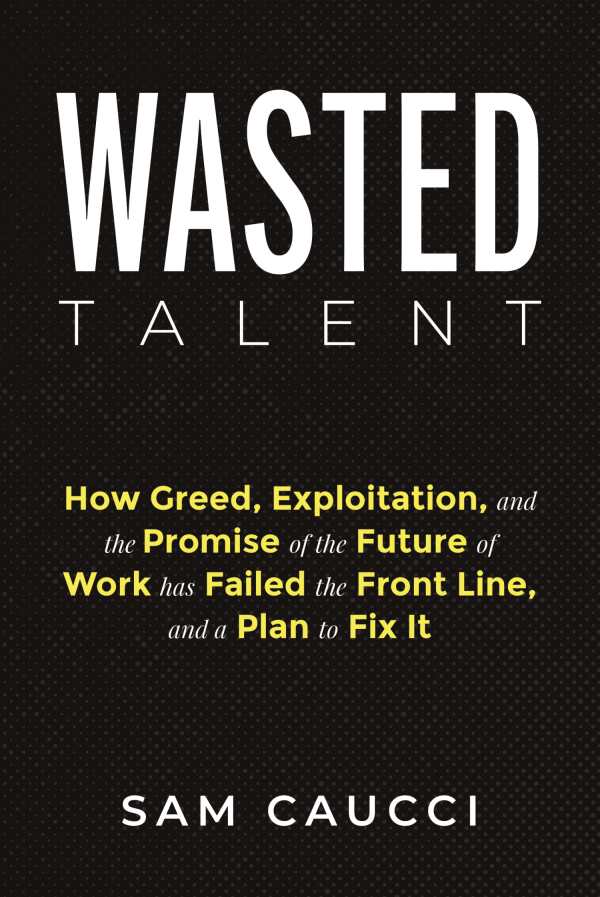Wasted Talent
How Greed, Exploitation, and the Promise of the Future of Work Has Failed the Front Line, and a Plan to Fix It
Challenging the systemic tendency to hold workers down and keep them from unlocking their full potential, Wasted Talent is a vigorous leadership manifesto.
Sam Caucci’s incisive leadership guide Wasted Talent is about treating one’s employees with fairness in order to get the most out of them.
Centered on worker welfare, the book questions why companies often complain about a skills gap but seldom do anything to address it. It proposes a shakeup to the status quo to afford workers better compensation, treatment, and opportunities, suggesting ways to better nurture employee talent and harness people’s potential. It also repudiates toxicity in the workplace, with examples including wage theft and erratic scheduling.
Organized as an argument, the book first asks why people work; its historical considerations here include the influences of classical thinkers, Puritanism, the Soviets, and industrialists. Next, it outlines a way forward that includes removing barriers, developing one’s staff in a continuous way, and meeting employees where they are with new technology. It volleys between identifying problems and pitching solutions throughout, as where it lists common lies told by employers (such as that workers are unskilled or lazy) before debunking them. It also segues between illustrative anecdotes and hard data, using an array of statistics and studies to support arguments such as that most workers collect a fraction of the actual economic value they generate while wages stagnate, costs rise, and the daily grind gets more intense.
The book makes good on its premise of questioning a system that holds workers down and keeps them from unlocking their full ability. Punchy and pugnacious, it paints a dire picture of wages not keeping up with productivity growth, a surge of worker disengagement, and how children from low-income households have little chance of ever moving up the economic ladder. It also reaches for hopefulness, suggesting practical solutions to the persistent workforce problems it identifies.
However, the prose is sometimes sarcastic at the expense of clarity, as with the declaration that Henry Ford was a good guy after quoting him sounding the opposite, and with the description of a book that asserts it wouldn’t be that bad if a majority of jobs were to disappear as a “compelling read.” Its list of disgraced con artists, including Sam Bankman-Fried and Elizabeth Holmes, is also distracting. Persuasiveness is undermined by stark pronouncements such as that work is “the scam most people experience every day,” and the text sometimes focuses on entertainment over cogency, as where it contextualizes a mention of Anna Delvey with “whatever it is she was.”
A sharp leadership guide, Wasted Talent proposes a more humane approach to entrepreneurship that prioritizes treating workers well, enabling them to flourish.
Reviewed by
Joseph S. Pete
Disclosure: This article is not an endorsement, but a review. The publisher of this book provided free copies of the book and paid a small fee to have their book reviewed by a professional reviewer. Foreword Reviews and Clarion Reviews make no guarantee that the publisher will receive a positive review. Foreword Magazine, Inc. is disclosing this in accordance with the Federal Trade Commission’s 16 CFR, Part 255.

